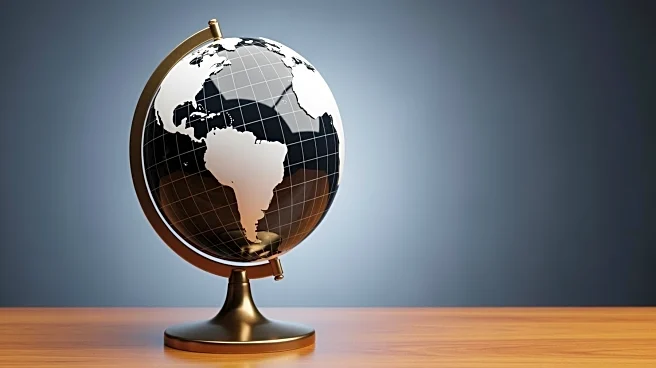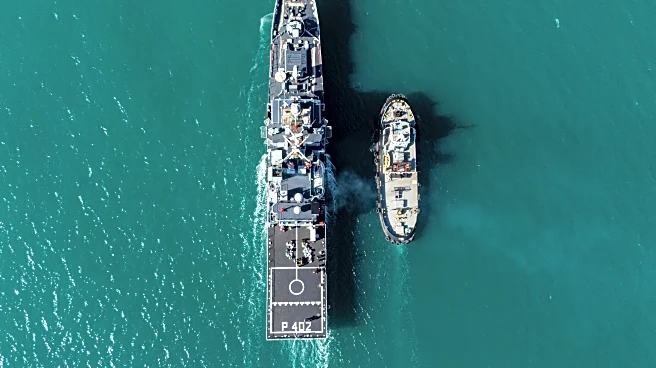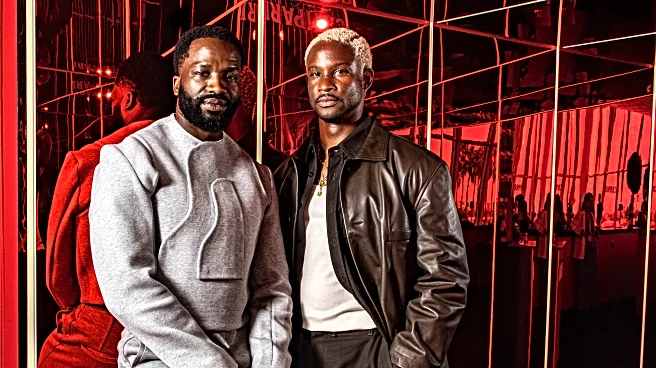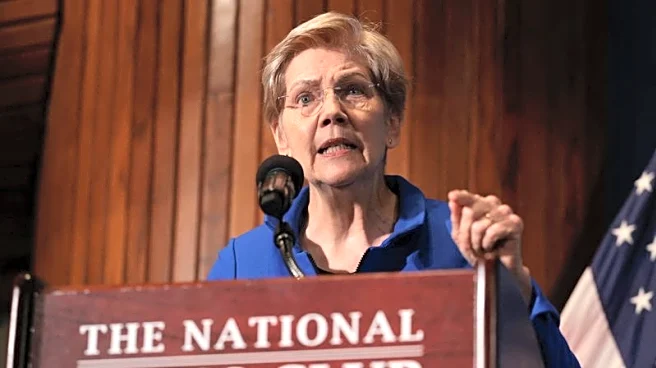What's Happening?
The Prime Minister of Singapore has expressed concerns about the transition to a 'post-American' world order, characterized by a shift towards multi-polarity. This transition is marked by the United States
stepping back from its traditional role as a global leader, creating a vacuum that no other country is currently able or willing to fill. The Prime Minister emphasized the need for countries to take proactive measures to address global challenges and maintain trade liberalization. Singapore, as a highly globalized nation, is particularly focused on reinforcing multilateral frameworks and building new trade connections with like-minded countries. The Prime Minister also noted the impact of U.S. tariffs on global trade dynamics and the necessity for countries to invest in their own economic security.
Why It's Important?
The shift towards a multi-polar world order has significant implications for global trade, economic stability, and international relations. As the U.S. reduces its global leadership role, countries like Singapore must navigate a more complex and unpredictable international landscape. This transition could lead to increased regionalism and the formation of exclusionary blocs, which may destabilize global trade and economic cooperation. The Prime Minister's remarks highlight the importance of maintaining open trade channels and reinforcing multilateral institutions like the WTO. The situation also underscores the need for countries to adapt to changing geopolitical dynamics and invest in their own security and economic resilience.
What's Next?
Countries are likely to continue seeking new alliances and trade partnerships to mitigate the effects of a less predictable global order. Singapore, in particular, will focus on strengthening its role as a key node in global trade networks and maintaining its reputation for rule of law and trust. The Prime Minister's comments suggest that Singapore will work with other nations to develop new multilateral frameworks and initiatives to support global trade and investment. Additionally, ongoing discussions with the U.S. regarding tariffs and trade policies will be crucial in shaping future economic relations.
Beyond the Headlines
The transition to a multi-polar world order raises ethical and strategic questions about global governance and the distribution of power. As countries adjust to new realities, there may be increased pressure to reform international institutions to better reflect the current geopolitical landscape. The potential for exclusionary blocs and spheres of influence could also challenge the principles of open and inclusive global engagement. Furthermore, the rise of regional powers and the diversification of global leadership may lead to shifts in cultural and political norms, influencing how countries interact on the world stage.











